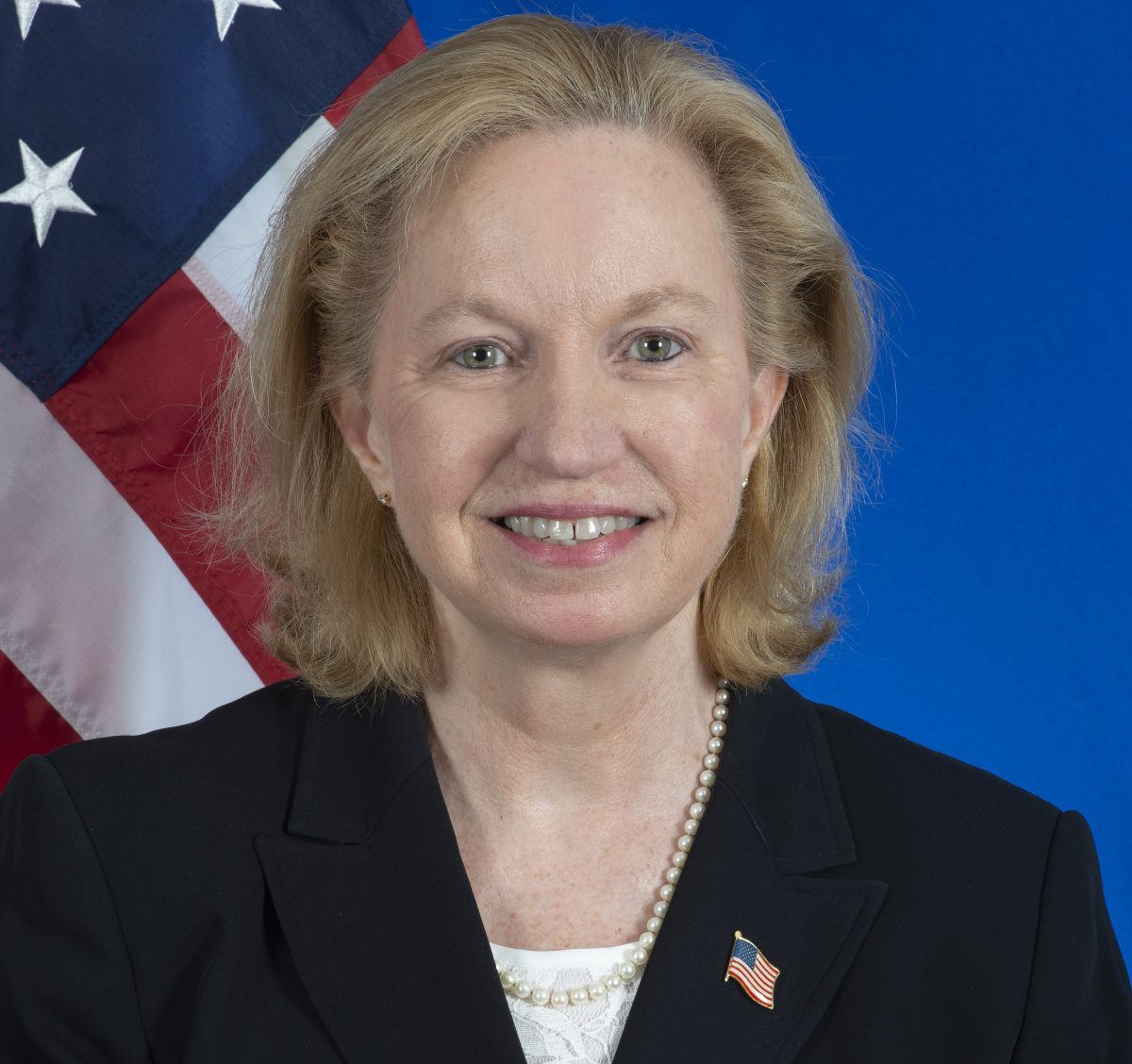United States Ambassador to Guyana Sarah-Ann Lynch has warned that the tenor of some of the ongoing advocacy for the local content policy for the oil and gas sector may make foreign investors feel unwelcome.
Speaking at the first Annual General Meeting (AGM) of the American Chamber of Commerce Guyana Inc (AmCham Guyana) yesterday, Lynch stressed that with the development of a global energy sector, focusing on who owns a firm could be counterproductive.
“Recent suggestions of a local content policy in Guyana may send a signal that some investors as well as the employment and know-how benefits they bring may not be welcome here,” she said.
The Ambassador appeared to be directly addressing AmCham President Zulfikar Ally, who recently told a forum that while the third draft of Guyana’s Local Content Policy has good implementation plans and ties in with current oil and gas contracts, companies must be monitored to ensure that they are complying with the document.
Speaking at a forum held at the Duke Lodge, Ally stressed that Guyanese will have to look at whether the objectives of the local content policy are supported by existing legislation, which were designed to support previous policy goals.
“I think we are all aware [that] Guyana has become an attractive destination for foreign companies. In the past, all efforts were made to attract these companies to Guyana with the provision of incentives, tax holidays and duty-free concessions. The country no longer has to be overly generous with this policy, but [has] to now ensure that the local private sector, Guyanese, especially the SMEs [small and medium-sized enterprises] also benefit from these concessions and duty-free [concessions] in order to build their capacity to enter this new sector,” he said.
In her address yesterday, Ambassador Lynch sought to remind AmCham of its mission, which includes creating a greater appreciation of the value of a more liberal investment of substance and self on behalf of the interests of competitive businesses.
In keeping with its mission, the Ambassador asked that AmCham ponder its leadership role in pursuing a strengthened investment and trade relationship with the United States in support of a shared vision of sustainable prosperity for Guyana. “As in most policy matters, such a vision requires that we avoid undermining our own objectives,” she stressed before raising concerns about the local content advocacy.
According to the Ambassador, the emphasis should be not on who owns a firm but on whether the firm, be it local or international, is following international best practices on critical matters, such as financial transparency, environmental protection and is otherwise acting in a manner that contributes directly to Guyana’s overall sustainable prosperity.
“Most importantly Guyana should look at all potential investors as partners in growing the economy not as adversaries. The US embassy is therefore prepared to work with AmCham to connect your leadership with US experts who can provide guidance on many of these key issues,” she concluded.
The Ambassador explained that her goal in addressing the AGM was to kick start a binational dialogue on open investment so that AmCham and the Guyanese people can select the best long term path to prosperity
“I look forward to AmCham, the government, other private sector actors and the citizens of Guyana playing an active role in transforming into a vibrant economic leader in this region and across the globe,” she said.
Guyana’s Local Content Policy is currently at its third draft, which has received mixed reviews.
Past President of the GCCI Deodat Indar told the audience at the Duke Lodge discussion that while the policy is a “step up” from the previous drafts, it is not only coming late but is not tied to legislation to ensure that locals get the opportunities they deserve.
“I will endorse this third draft as a step up but it still [has] problems… you have to get legislation for this thing to work,” he stressed.
A passionate Indar said he believes that this country focuses too much on playing by every rule for market and trade to the detriment of its people. He said that while Guyana is the most liberal at upholding the CARICOM trade principles, the very countries we facilitate are hostile to us but take up jobs here.






